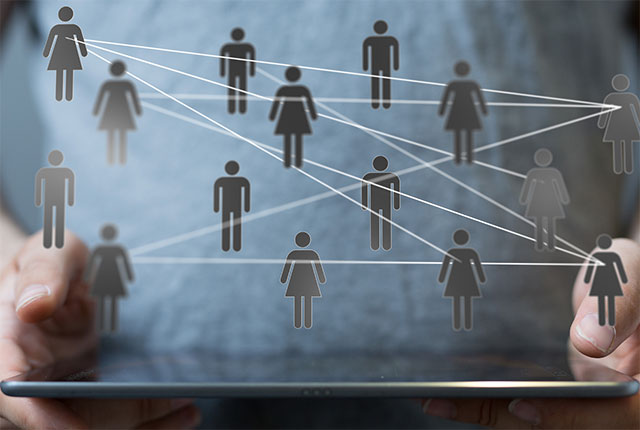The importance of staff networks
A sense of inclusivity in the workplace is essential for staff health and well-being. Staff networks can help this by bringing together people from a diverse group of backgrounds, as Romesh Palamakumbura explores.
18/03/2022 By BGS Press
‘Diversity doesn’t stick without inclusion,’ wrote Sherbin and Rashid (2017). For some time now, we have been working towards diversifying our workforces, in BGS, across the geosciences and in many other industries. Although it has been slow progress so far, most fields of science have improved their diversity (Woolston, 2021). One measure of this is the increased number of grants awarded by UKRI (UKRI, 2021) between 2014 and 2020 to investigators who come from a minority background. While this figure is encouraging, it is imperative to think about how we support staff from minority backgrounds as we increase the diversity of our science community.
Inclusivity at BGS
For people to produce their best work, a sense of inclusivity is essential. At BGS, we are striving towards improving inclusivity. We have increased the presence of role models in leadership positions, amplified our outreach communications, arranged talks for staff and offered a wide variety of training, including in trans-awareness and unconscious bias. To support the diversity of scientists at BGS we have also created a number of staff networks:
- BGS RISE (Racial Inclusion & Striving for Equity)
- BGS PRIDE
- BGS Neurodiversity Group
The role of staff networks
Staff networks are about bringing people together from a wide variety of backgrounds, for example University College, London has 17 staff networks or forums that range from race, minority and LGBTQ+ groups to networks that focus on faith, neurodiversity, male allyship and menopause (UCL, 2022). These networks allow people with similar backgrounds to share experiences specific to them with people in same field of work. The networks are not only for minority groups but for larger communities. A great example of this is the ’male allies’ network, which provides a safe place for men to share common issues around mental health and work/life balance.
The size of these networks can vary from small groups to an organisational level, larger governing bodies such as UKRI, and across scientific communities (e.g. Pride in Polar). Every network – no matter how big or small – can play a key role for its members and associated organisations. Having networks at different levels is an important step to address different scales and types of issue. Each type of network offers a safe space for members to talk with others who have similar lived experiences and for staff to discuss their experiences both across their respective scientific communities and within their personal lives. Some experiences are specific to the organisation or the scientific field and therefore networks can provide support for career development and self-improvement for individuals. For example, a recent blog from the BGS PRIDE network (BGS LGBTQ+ Network, 2020) described the challenges that can face BGS staff in the LGBTQ+ community working across the globe, especially in countries that criminalise same-sex relationships.
Being dynamic is one of the strengths of a staff network. They can be official, organisational networks that are created to last for the long term, or they can be set up to address specific, short-term issues such as parenting groups established during the coronavirus pandemic. These networks may not need to continue forever, but they can bring people together to help tackle challenges in the present and help people to realise that they are not alone.
Networks at BGS
BGS as an organisation has staff in six main offices and several observatories across the UK and of BGS’s biggest strengths comes from the diversity of staff spread across the country. Connecting staff can be a challenging but rewarding experience for both staff and networks. Networks provide a forum to meet people from across the organisation, outside of immediate work colleagues. This provides an opportunity to become more integrated and connected with the organisation, particularly for staff in small offices.
A successful staff network is a two-way street, not only benefiting employees but also the organisation. The collective experience of members can also provide invaluable feedback on current policies and provide new, innovative ideas, based on lived experiences, for improving diversity and inclusivity. As we come out of the pandemic and start to develop new ways of working, begin field work once more on both national and international scales, and continue to deal with the consequences of recent social movements such as Black Lives Matter, our staff networks provide an important contribution to the continuous development of inclusive policy at BGS and in the scientific community.
BGS LGBTQ+ Network. 2020. LGBTQ+ STEM Day. British Geological Survey Geoblogy.
Sherbin, L, and Rashid, R. 2017. Diversity Doesn’t Stick Without Inclusion. Harvard Business Review.
UCL. 2022. Staff Equalities Networks. Human Resources UCL.
UKRI. 2021. Diversity results analysis for UKRI funding data, financial years 2014-15 to 2019-20. Corporate report.
Woolston, C. 2021. Diversity in science workforce an ‘economic imperative’. Nature, Career News.


